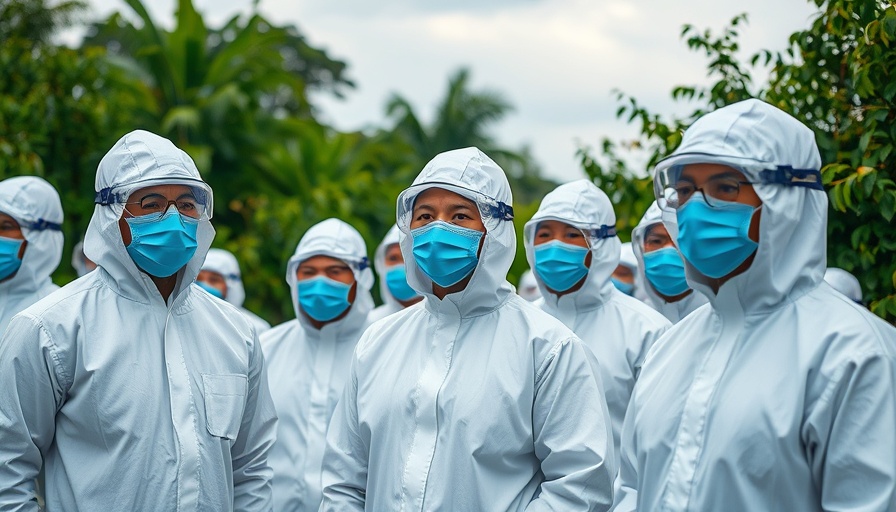
Revisiting the Role of Masks in Public Health
The covid pandemic reshaped global health protocols, thrusting face masks into everyday life. Initially celebrated as vital tools in safeguarding human health, masks have now emerged as potential environmental hazards. Research from Coventry University highlights that not only did they serve as physical barriers against the virus, but they also became a source of microplastics and chemical contaminants. This duality invites deeper reflection on our approaches to health and environmental safety.
The Environmental Threat of Disposable Masks
As face masks transitioned from essential health items to waste products, their environmental footprint has been brought under scrutiny. The study revealed that common fabric masks release significantly more microplastic particles compared to standard surgical masks, even when they are not subjected to wear and tear. With typical household materials like polypropylene dominating their composition, these masks can take hundreds of years to decompose. Experts are now concerned about how these particles can end up in oceans and soil, posing risks to wildlife and ecosystems.
Health Risks Linked to Chemical Additives
The implications of masks go beyond environmental damage; they also touch upon human health. Some masks were found to leach harmful chemicals such as bisphenol-B, a known endocrine disruptor. This calls for immediate action to better regulate the production of masks, urging manufacturers to consider safety in design as a priority. Anna Bogush, one of the researchers, emphasizes the need for awareness surrounding these risks, particularly as face masks may still play a role in future public health strategies.
Exploring Sustainable Alternatives
As awareness of the harmful effects of disposable masks grows, the market for sustainable alternatives is gaining momentum. Biodegradable masks or those made from natural fibers are emerging as viable options that resonate with environmentally conscious consumers. These innovations not only aim to reduce the ecological impact but also address potential health hazards. Fostering awareness about such alternatives can empower consumers to make informed choices and encourage manufacturers to prioritize sustainability in their products.
Guidelines for Proper Disposal and Use
With the threat of microplastics and chemical leaching, it becomes crucial to handle mask disposal responsibly. Simple guidelines can make a significant impact: cut or destroy masks before throwing them away to prevent wildlife entanglement and ensure they are disposed of in appropriate waste streams. Engaging in discussions about effective recycling methods and advocating for community initiatives can amplify this message. Collectively, we can mitigate the environmental impact while maintaining public health protocols.
Empowering Individuals Through Awareness
Ultimately, the challenge lies not only in the production of safer masks but in the hands of the consumer. By advocating for better choices and remaining informed about the potential impacts, individuals can drive demand for environmentally friendly options. The conversation surrounding masks has evolved from health protection to environmental and health responsibility, prompting both individuals and corporations to reconsider their habits and practices.
Amidst ongoing health challenges, the promotion of sustainable practices is paramount. As consumers, our choices reflect our values and vision for a healthier planet. Let’s advocate for smarter, safer alternatives that prioritize our planet’s health alongside our own.
 Rij toevoegen
Rij toevoegen






Write A Comment